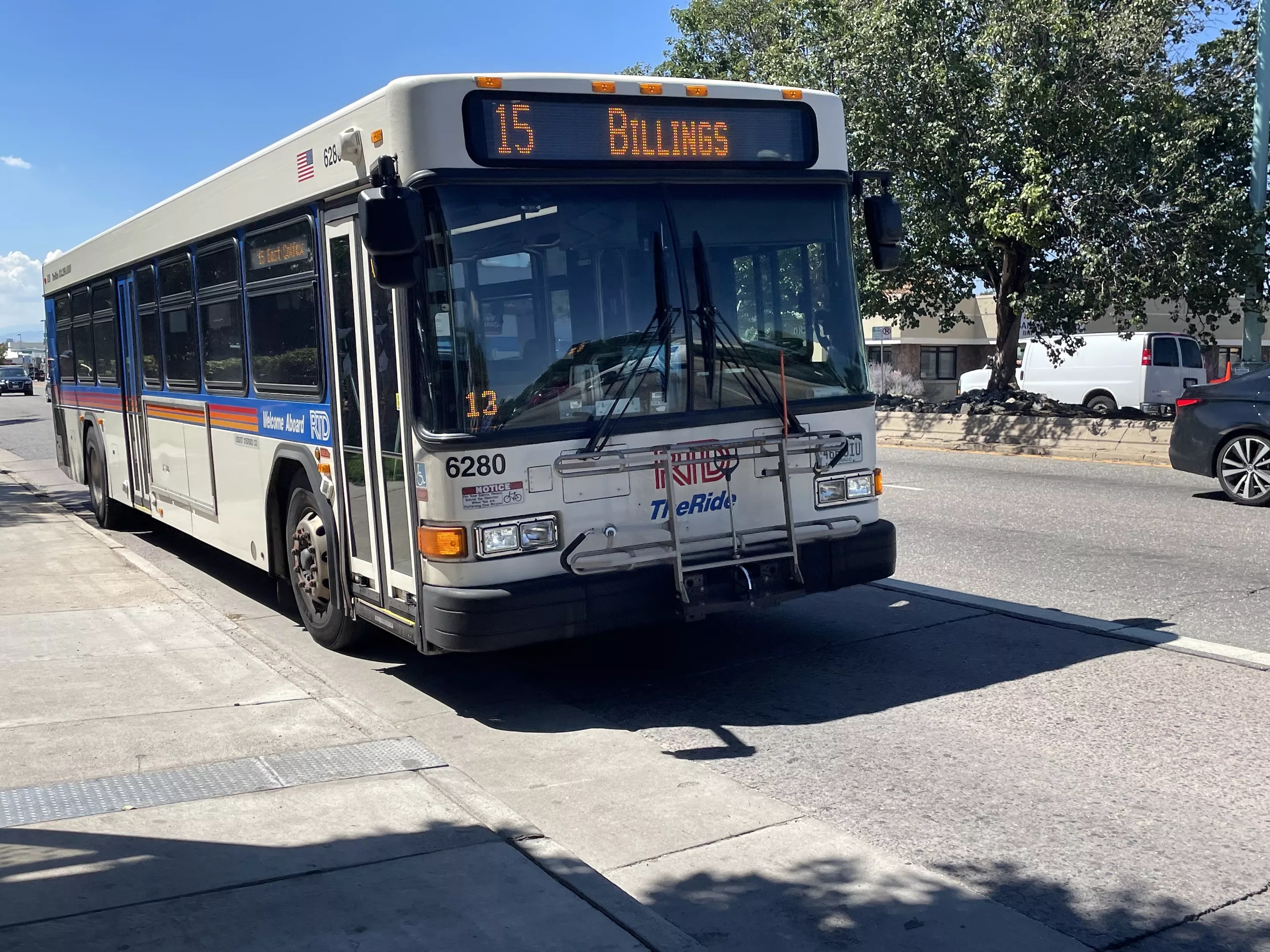
Catie Cheshire

Audio By Carbonatix
The Regional Transportation District is coming to the end of a years-long process to rework its fare structure, bringing down rates for every rider and adding more opportunities for free rides.
On May 16, during the final public hearing for the fare study, Chris Quinn – deputy project manager with RTD – shared that the agency plans to test a service for youth ages nineteen and under to ride free, and that it will expand last year’s Zero Fare for Better Air program to cover both July and August, thanks to a state grant making it possible for the agency’s network to run without charging customers during ozone season.
The free fare program was deemed a success in 2022, earning positive rider feedback. Riders have also driven the recommended fare changes, with Carl Green, civil rights director and deputy project manager for RTD, noting that thousands of people have participated in the process to develop the new rates.
“This process has been very customer- and community-driven,” Green said at the hearing.
The last day to provide public comment on RTD’s website is May 22.
On May 16, RTD staff laid out the changes, all based on customer feedback.
“The big thing was that the fare structure is just too complicated,” Quinn said. “The fares are just too expensive. Lastly, while RTD does provide a discount for monthly users, we did hear that it really isn’t that much of a discount.”
Based on that information, fares will decrease for everyone from $3 for local trips and $5.25 for regional trips to $2.75 no matter where you’re riding, with the agency eliminating regional fares entirely. The single more expensive trip will be to the airport, which will decrease from $10.50 to an even $10.
Monthly passes for all riders will be $88 and include airport trips. Previously, local monthly passes were $114, and regional passes that included airport trips were $200.
Jonathon Stalls, an advocate for pedestrians, asked in the Zoom chat at the meeting why the agency landed on $2.75, given that’s an amount that is difficult to gather exact change for.
Quinn said that number is the lowest point RTD’s models indicated it could go without running the risk of being forced to cut down on services, noting that the agency has worked over the years to make electronic ticketing more accessible.
“A lot of the feedback that we did receive is that every cent matters,” Green added. “We’re also moving forward with expanding our retail network, providing another opportunity beyond our sales outlets and our partnership with King Soopers and Safeway to provide different touch points for folks to be able to load value onto their MyRide cards.”
Green said RTD’s study indicates that low-income and minority customers would experience a 22 to 23 percent decrease in average fair price.
The new fare structure would also improve discounts for various groups of riders. The youth pilot program will start in September, after the two months when everyone rides free. Once it kicks off, those nineteen and under will ride free everywhere on RTD’s system. For older youth who may look twenty and over, the agency will merely ask that they show a middle or high school student ID to ride.
The pilot will last for one year, and RTD hopes to find a partner to fund it beyond that timeline.
Once youth reach adulthood, they could be eligible for the new college student discount under the recommended fare structure. That discount will include all college students, including those at technical schools and community colleges, who attend schools that don’t participate in RTD’s College Pass program.
Students will be able to get a discount on monthly passes for the duration of their semester, decreasing the price from $88 to $70. That program will start this fall when school commences again.
The LiVE Income-Based discount program and the discount program for people 65 years or older, those on Medicare, and people with disabilities will combine into one lower fare structure. They will pay $1.35 per ride, $2.70 for a day pass, and $27 monthly.
“A big simplification there to what we currently have,” Quinn noted.
The current structure varies among those groups and is more costly. LiVE discounts will also apply to Access-A-Ride under the recommended fares.
“Additionally, we are increasing the income a household can make,” Quinn continued. “As an example…a family of four with a household income level of $75,000, they would now qualify for the discount.”
RTD also plans to improve outreach about the fare discount programs, asking public-hearing participants for suggestions of community partners that could help get the word out. The agency already noted libraries, grocery stores, post offices and other nonprofits.
Participants suggested adult daycare centers, school districts and food banks or pantries for other potential partners.
RTD held open public comment and asked poll questions to determine how people feel about the recommendations. According to Colleen Maleski, RTD’s emcee for the day, 67 percent of participants were excited about the discounted fares, half the people were excited about lower monthly pass rates, and about a third were excited about a simpler fare structure.
After public comment closes on May 22, the final recommendation will go to the RTD board in July for a vote. If approved, the changes will be implemented at the beginning of 2024. RTD is hosting an in-person open house at the Carla Madison Recreation Center, 2401 East Colfax Avenue, from 5 to 7 p.m. on May 17. It will also have a presence at many community events through the end of the month.